Imagine a world where transactions are as secure as a bank vault and as transparent as your grandma’s favorite recipe. That’s the magic of blockchain! This revolutionary technology has taken the digital landscape by storm, turning heads and raising eyebrows. But what exactly is blockchain?
Table of Contents
ToggleWhat Is Blockchain?
Blockchain represents a decentralized digital ledger system that records transactions across multiple computers. Each record, or block, contains transaction details, timestamps, and cryptographic hashes linking it to the previous block. This structure ensures security, making alterations to past information nearly impossible.
Transparency plays a crucial role in blockchain technology. Every participant in the network can access the entire chain, allowing them to verify transactions independently. This visibility enhances trust among users, reducing the need for intermediaries.
Smart contracts, an essential feature of blockchain, provide automated execution of agreements when set conditions are met. They eliminate disputes linked to contractual obligations, streamlining processes in various industries, including finance and supply chain management.
Numerous sectors benefit from blockchain. For instance, the banking industry uses it to facilitate faster cross-border payments. Healthcare organizations leverage blockchain for secure patient records, while retail companies track product provenance to assure quality.
The impact of blockchain technology continues to expand. Enterprises that embrace it often report increased efficiency and reduced operational costs. Additionally, innovation thrives in sectors exploring decentralized finance (DeFi) and non-fungible tokens (NFTs), contributing to the ongoing evolution of the digital economy.
Blockchain offers significant advantages, including security, transparency, and efficiency, while inspiring a wide range of applications across various fields.
Key Characteristics of Blockchain

Blockchain technology exhibits several key characteristics that contribute to its transformative potential in various industries. These features include decentralization, immutability, and transparency.
Decentralization
Decentralization empowers blockchain by distributing control across a network of computers. Rather than relying on a central authority, each participant maintains their own copy of the ledger. This structure enhances resilience against attacks. It also minimizes fraud risks, as altering data requires consensus from multiple nodes. Users benefit from increased security, fostering trust among participants. In systems like Bitcoin, decentralization drives the currency’s independence from traditional financial institutions.
Immutability
Immutability reinforces blockchain’s integrity by ensuring that once data is recorded, it cannot be altered. Each block contains a unique hash derived from the previous block’s data, creating a tamper-proof chain. This characteristic instills confidence in data persistence, crucial for financial transactions and data storage. Transactions are verifiable and auditable, making blockchain suitable for industries like healthcare and supply chain management. Businesses rely on this feature to maintain accurate records and establish accountability.
Transparency
Transparency forms the backbone of blockchain by granting all participants access to the entire ledger. Every transaction remains visible, enabling independent verification and fostering trust. This openness reduces the necessity for intermediaries and enhances collaboration among users. Industries such as real estate and finance leverage transparency to streamline processes and minimize disputes. Furthermore, the accessibility of transaction history empowers users to track changes and validate actions, leading to greater confidence in the system.
How Blockchain Works
Blockchain technology operates through a network of interconnected nodes that play essential roles in transaction validation and data integrity.
The Role of Nodes
Nodes serve as critical components in a blockchain network. Each node maintains a copy of the entire blockchain, ensuring all data remains synchronized across the network. During transactions, nodes verify and validate the information through a consensus process. They also propagate new transactions and blocks, enhancing the network’s integrity. If a node attempts to submit fraudulent data, other nodes quickly identify discrepancies and reject it. This decentralized approach minimizes single points of failure, promoting resilience against attacks.
Consensus Mechanisms
Consensus mechanisms establish agreement among nodes on the validity of transactions. Different types exist, with Proof of Work and Proof of Stake being the most prominent. Proof of Work requires nodes, known as miners, to solve complex mathematical problems before adding new blocks. This process secures the network and deters malicious activities. Proof of Stake, on the other hand, allows nodes to validate transactions based on the amount of cryptocurrency they hold, promoting energy efficiency. These mechanisms ensure all participants agree on the state of the blockchain, fostering trust and cooperation.
Applications of Blockchain
Blockchain technology finds diverse applications across various sectors, revolutionizing how industries operate by enhancing security and transparency.
Cryptocurrency
Cryptocurrency serves as one of the most recognized applications of blockchain. Digital currencies such as Bitcoin and Ethereum rely on blockchain to securely record transactions. This decentralized ledger enables users to conduct peer-to-peer transactions without intermediaries. Security comes from cryptographic algorithms that protect transaction data from tampering. Moreover, the transparent nature of blockchain allows for public verification of transactions, fostering trust among users. Market trends indicate that the cryptocurrency sector continues to grow, with numerous new digital currencies entering the financial landscape.
Supply Chain Management
Supply chain management benefits significantly from blockchain technology. Companies use blockchain to enhance traceability and accountability in the movement of goods. Each step, from production to delivery, gets recorded on the blockchain, creating an immutable record. This visibility enables businesses to verify authenticity and prevent fraud effectively. Real-time data sharing among stakeholders accelerates decision-making and improves efficiency. As supply chains become increasingly complex, embracing blockchain solutions leads to reduced operational costs and enhanced customer satisfaction.
Challenges and Limitations
Blockchain technology faces several challenges and limitations that can impact its widespread adoption.
Scalability Issues
Scalability remains a primary concern for blockchain networks. Increasing transaction volume can slow down processing speeds. Many existing platforms struggle to handle large volumes, leading to higher transaction fees during peak times. Ethereum, for instance, has experienced congestion, prompting delays in transaction verification. Solutions such as layer two protocols and sharding are under exploration to enhance capacity. Each approach aims to balance speed, efficiency, and security while preserving the fundamental attributes of the technology.
Regulatory Concerns
Regulatory uncertainty complicates the blockchain landscape. Different countries impose varied rules affecting operations, security, and compliance within the ecosystem. For example, the lack of a clear legal framework can hinder financial institutions from fully integrating blockchain solutions. Several jurisdictions have embraced comprehensive laws, while others remain ambiguous. Organizations often face challenges regarding data privacy and consumer protection regulations as they build blockchain applications. Addressing these concerns will require collaboration among governments, regulatory bodies, and industry stakeholders to establish standardized guidelines.
Blockchain technology is reshaping how industries operate by providing unmatched security and transparency. Its decentralized nature fosters trust among users while reducing reliance on intermediaries. As organizations continue to explore its potential applications from finance to supply chain management the benefits of blockchain are becoming increasingly apparent.
Despite facing challenges like scalability and regulatory hurdles the ongoing innovation in this space indicates a promising future. With solutions being developed to address these limitations blockchain is set to play a crucial role in the evolution of the digital economy. The journey of blockchain is just beginning and its impact will likely grow as more sectors recognize its transformative capabilities.








